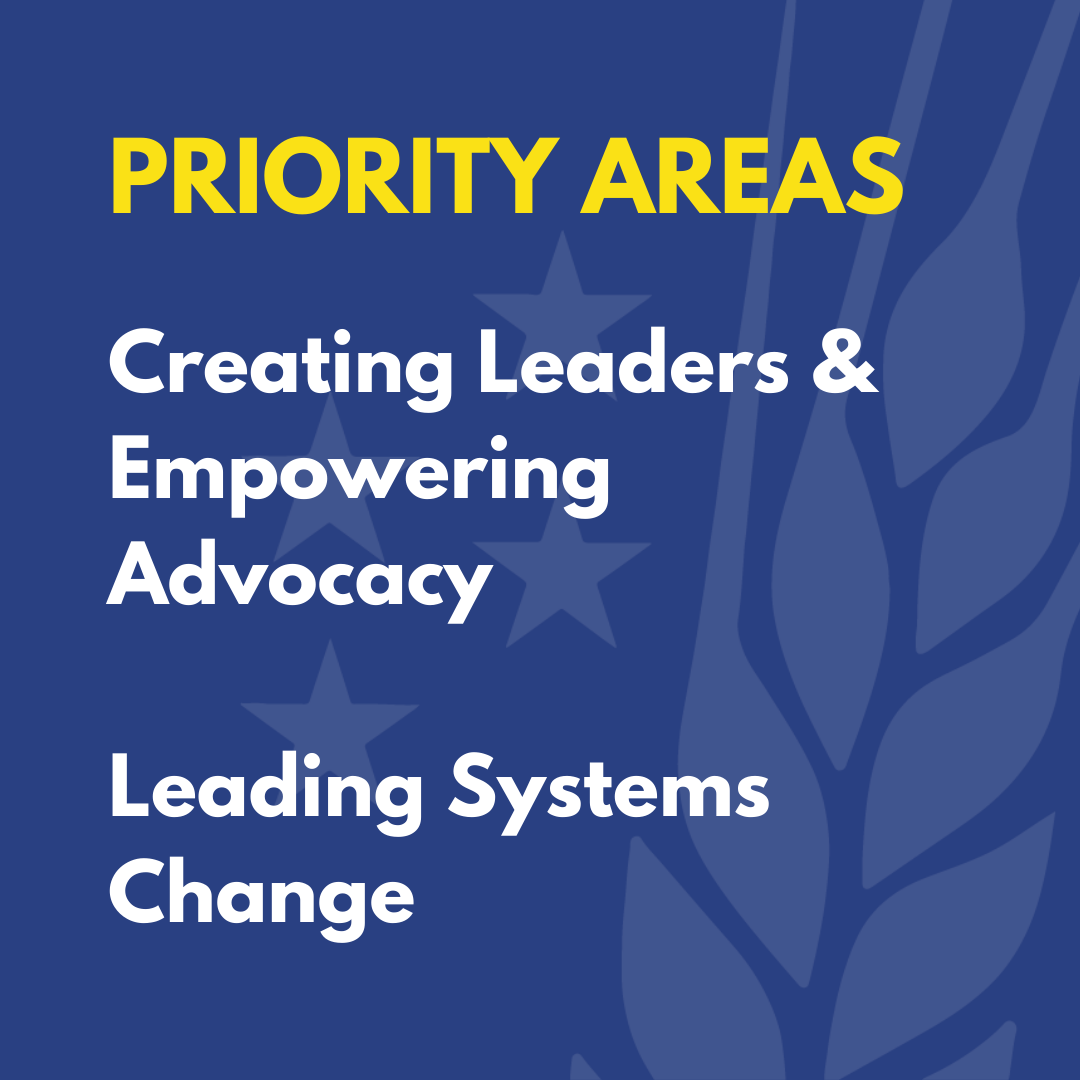View our FY22 Program Performance Report (PPR)
Kansas Council on Developmental Disabilities developed the Council’s 2022-2026 Five Year State Plan. Self-advocates, families, state agencies, providers, educators and other stakeholders contributed their ideas and suggestions relating to the Council’s charge, “to ensure the opportunity to make choices regarding participation in society and quality of life for individual with developmental disabilities.” This information was considered in the development of the 2022-2026 Five Year State Plan goals, objectives, and activities. The Council developed and approved goals and objectives that we believe will result in greater systems change and increased advocacy for Kansans with intellectual and developmental disabilities, for more inclusive, integrated, accessible communities where everyone belongs and thrives. The Five-Year Plan will guide our activities over the next five years. KCDD has identified the Council’s areas of priority: Creating Leaders, Empower Advocacy and Leading Systems Change.
Goal 1. Create Leaders and Empower Advocacy
By 2026, people with developmental disabilities and their families will have access to leadership development trainings and tools so that they can better advocate for their needs and preferences.
Goal 1, Objective 1: Establish and Strengthen Statewide Self Advocacy (DD Act Requirement)
By 2026, Kansas will strengthen a state self-advocacy organization led by people with DD, the Self Advocate Coalition of Kansas (SACK), through supporting and increasing the number of self-advocates who participated in leadership training so they can provide others including additionally identified self-advocates with opportunities to learn and engage in personal, collaborative, and civic leadership so that self-advocates can be on workgroups, committees, Councils, and commissions.
Goal 1, Objective 2: Support advocacy training and development programs for family members
By 2026, Kansas will have increased the number of newly identified family members who have participated in leadership and advocacy training so they can provide their families and other family to family peers with opportunities to learn and engage in personal, collaborative, and civic leadership.
Goal 2. Lead Systems Change
By 2026, people with developmental disabilities and their families in Kansas will have increased awareness and access to formal and informal supports and services that promotes independence and meets their individual needs and preferences.
Goal 2, Objective 1: Increase Awareness of Informal and Formal Supports and Services with a focus on Transitions across the Lifespan
By 2026, Kansans with disabilities and their family members will have increased awareness of formal and informal supports and services that meet their individual needs and preferences.
Goal 2, Objective 2: Increased awareness and participation of early childhood and education interventions and supports for English as a Second Language (ESL)/Hispanic Kansas families with children with disabilities (Targeted Disparity)
By 2026, Spanish speaking Latinx families and people with disabilities in Garden City will have increased awareness of formal and informal supports and services that meet their individual needs and preferences in a culturally appropriate manner.
Goal 2, Objective 3: Cultivate innovative solutions for Kansans with I/DD on a waiting list and those who seek more individualized support options:
By 2026, Kansans who seek more individualized options or who are on a waiting list for waiver services will have increased awareness and access to formal and informal supports and services that meet their individual needs and preferences, including enhanced data collection efforts.
Goal2, Objective 4: Increase Protections from Abuse, Neglect, and Exploitation
By 2026, Kansans with disabilities will have increased protections from abuse, neglect, and exploitation (ANE) through enhanced reporting, data, and training opportunities.
Goal 2, Objective 5: Increased utilization of Supported Decision Making (DD Network Collaboration Measure)
By 2026, Kansans with disabilities and their families will have increased awareness and utilization of Supported Decision Making (SDM), an alternative to Guardianship facilitated by collaboration between the Council, the Disability Rights Center of Kansas, and the Kansas University Center for Excellence on Developmental Disabilities.
Goal 2. Objective 6: Emerging Needs:
By 2026 KCDD may collaborate with stakeholders and organizations to monitor and respond to emerging needs that affect Kansans with ID/DD and their families that are a result of manmade, natural or environmental events.



